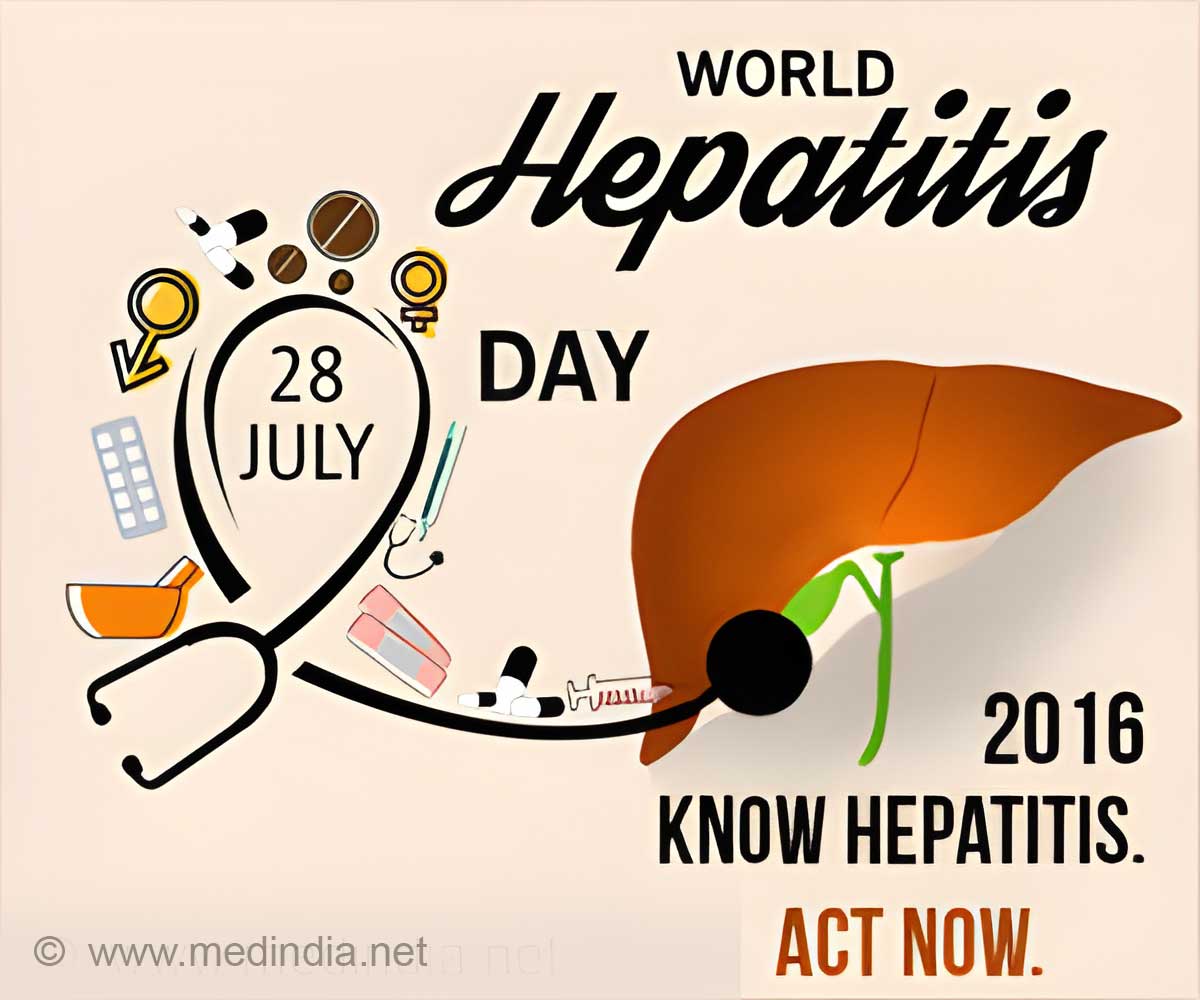The slogan for the World Hepatitis Day2016 is Know Hepatitis. Act Now, and the theme is Elimination.

- Hepatitis is a common yet often undiagnosed condition.
- Adequate preventive measures and early treatment can save lives.
- The slogan for this year’s World Hepatitis Day is: Know Hepatitis. Act Now.
TOP INSIGHT
Ninety five percent individuals with hepatitis do not know that they are infected.
- There are 5 types of viral hepatitis, hepatitis A, B, C, D, and E. As obvious from the name, viral hepatitis is a liver disease that produces symptoms like nausea, jaundice and lethargy. While hepatitis A and E are usually associated with a self-limiting illness, hepatitis B and C can result in liver cirrhosis and liver cancer. Hepatitis E can have grave consequences in pregnant women. Hepatitis D can infect only people who already house the hepatitis B virus (HBV).
- Hepatitis B and C are important public health concerns. Transmission of the viruses occurs through blood and blood products, contaminated injections or through sex. They can also pass from the mother to her newborn baby. Effective treatment for hepatitis C is available, though it is out of reach of most affected individuals. The cost of these medications is declining, and hopefully more patients will be able to have access to the treatment.
- Despite the fact that adequate information is available regarding the mode of spread of the virus and ways to prevent the infection, the statistics are quite alarming. Around 400 million people are infected worldwide and around 1.4 million succumb to the disease every year.
- Only 1 in 20 people with hepatitis actually know that they are suffering from the disease. This situation is highly dangerous. The patients do not receive treatment on time and may go on to suffer from liver cirrhosis and liver cancer. An even more concerning consequence is that these individuals will unknowingly spread the infection to others, resulting in a silent epidemic.
- The situation in India continues to be grim with round 290,000 cases of acute viral hepatitis were reported in 2013. Hepatitis E appears to be the main cause of acute hepatitis in India. Around 92% to 98% of drug users in Manipur are suffering from hepatitis C. Around 1 lakh individuals die of hepatitis B in India every year.
- Awareness should be created about hepatitis among the general public, especially about its mode of spread and symptoms. People should be advised to eat hygienic food and drink clean and boiled water.
- The medical community should be advised not to re-use syringes and sterilize medical equipment. All donated blood should be checked for hepatitis B and C viruses.
- Regular screening for the virus could help in early detection. Perhaps more people will come forward once they know that the results of the test will be kept confidential.
- The process should not stop at mere testing. If tested positive, the patient should be administered treatment and should receive adequate counseling to prevent the spread of the virus to others.
- Safe sex should be advised, with the use of barrier contraceptive whenever possible. Drug users should be advised not to share syringes.
- The hepatitis B vaccine administered at birth significantly reduces the number of hepatitis B cases. Till 2014, 184 countries had introduced hepatitis B vaccination for infants. Vaccine for hepatitis A is also available, while a vaccine for hepatitis E is available and used only in China.
References:
- World Hepatitis Day — July 28th - (http://www.cdc.gov/hepatitis/worldhepday.htm)
- Hepatitis in India: Burden, Strategies and Plans - (http://ncdc.gov.in/writereaddata/linkimages/NewsLtr0103_20146480274026.pdf)
- Make the elimination of viral hepatitis our next greatest achievement - (http://www.nohep.org/)
 MEDINDIA
MEDINDIA




 Email
Email









